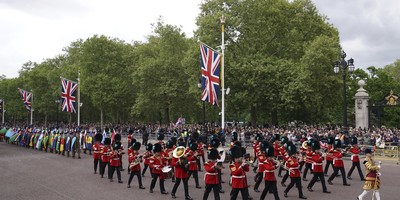Advertisement
How we view God inevitably determines how we view our fellow man. And how we view our fellow man, in turn, determines how we treat him. Created in God’s image or creature of chance? The answer makes a difference because what we believe determines how we behave.
Historically, most Americans have believed that God exists and that He created mankind in his image. They, therefore, concluded that human beings were endowed by their Creator with certain unalienable rights and, as the "image bearer of God," people were entitled to be treated with a measure of dignity and respect. Those shared beliefs produced shared cultural norms which, in turn, contributed to stability and order in our society.
America’s Founders recognized the important role that a shared belief in God contributed to the stability of our society. Our second President, John Adams, said, "We have no government armed with power capable of contending with human passions unbridled by morality and religion. Avarice, ambition, revenge, or gallantry would break the strongest cords of our Constitution as a whale goes through a net. Our Constitution was made only for a moral and religious people. It is wholly inadequate to the government of any other." Adams' son, John Quincy Adams (our sixth President), declared, "This form of government... is productive of everything which is great and excellent among men. But its principles are as easily destroyed, as human nature is corrupted.... A government is only to be supported by pure religion or austere morals. Private and public virtue is the only foundation of republics." Both presidents—father and son—understood that a shared belief in God is necessary to produce the shared values required for a stable society. Belief in God was the foundation of the republic. The very freedoms and republican form of government we embrace today require society’s acknowledgment of "the laws of nature and of nature's God" acknowledged by the Founders in our Declaration of Independence.
Recommended
Advertisement
Unfortunately, shared belief in a transcendent God—the cornerstone of our stable society—seems to be eroding in America today. The recently-released American Religious Identification Survey is an overview of religious demographics in America. Preliminary results show an America rapidly losing its religious faith. Since the survey began in 1990, the number of self-identified Christians has dropped from 86.2% to 76%, and the number of people claiming no religion has risen from 8.2% to 15%. People are losing faith in God at a rapid rate.
As our shared belief in a transcendent God disappears, our shared moral values inevitably give way to a pervasive relativism. We no longer believe in common moral values, so social norms begin to disappear. Every man is a law unto himself. Radical individualism reigns. We should, therefore, not be surprised when our cultural abandonment of shared values manifests itself in the caveat-emptor business practices which have produced our current financial crisis or the forked-tongued politicking of politicians who will spin any lie or reverse any position in order to pass the buck and keep their jobs. Without shared moral values, every person makes their own morality.
Likewise, we should not be surprised to find that Americans' faith in our cultural institutions is also faltering. Without shared belief in God, social values disappear, social norms are abandoned, and we no longer know what to expect from institutions like the family, church, or state. According to the
Advertisement
If we hope to regain a stable, virtuous society, we must first regain a shared belief in a transcendent God. Such belief is the cornerstone upon which common values, social norms, and confidence in our culture are built. Reverend Robert Sirico of The Acton Institute explains this well in his 2001 article "
Advertisement
A shared belief in a transcendent God produces shared moral values which provide people with social norms that give them confidence in their culture. Without this core belief, the structure of society is undermined by man-centered relativism. An increasingly unbelieving people also suffer from a loss of confidence in one another. Having replaced faith in a transcendent God with faith in flawed human beings, they inevitably set themselves for disappointment and abandon the only moral basis for a stable society.
Only by regaining our shared faith in a transcendent Law Giver will Americans be able to recover our faith in our society.























Join the conversation as a VIP Member